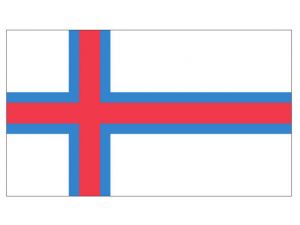Language/Faroese/Grammar/Basic-Prepositions
Learning prepositions is crucial for forming complete and accurate sentences in any language, and Faroese is no exception. In this lesson, we will cover some of the most basic prepositions in Faroese, such as in, on, at, with, and without. We will also learn how to use them in sentences and practice forming sentences on our own. By the end of this lesson, you will have a solid foundation of Faroese prepositions to build upon in your language learning journey.
Basic Prepositions
In
The preposition "in" in Faroese is "í." It denotes a location within an enclosed space or a location where something is contained.
Examples:
| Faroese | Pronunciation | English |
|---|---|---|
| Í bókinum | EE boh-kin-um | In the book |
| Í húsinum | EE hoo-sin-um | In the house |
| Í Føroyum | EE For-yoh-yum | In the Faroe Islands |
On
The preposition "on" in Faroese is "á." It denotes a position on a surface or an object.
Examples:
| Faroese | Pronunciation | English |
|---|---|---|
| Á borðinum | ow BOR-din-um | On the table |
| Á húsinum | ow hoo-sin-um | On the house |
| Á golvinum | ow GOHL-vi-num | On the floor |
At
The preposition "at" in Faroese is "á." It denotes a specific point or location.
Examples:
| Faroese | Pronunciation | English |
|---|---|---|
| Á skúlanum | ow SKOO-lan-um | At the school |
| Á miðnátt | ow MID-naht | At midnight |
| Á einum kafé | ow EYE-num ka-feh | At a café |
With
The preposition "with" in Faroese is "við." It denotes the company or accompaniment of something or someone.
Examples:
| Faroese | Pronunciation | English |
|---|---|---|
| Við familjuni | vith fa-MIL-yoo-nee | With the family |
| Við bólkunum | vith boulk-un-um | With the group |
| Við táninginum | vith tah-ning-i-num | With the dinner |
Without
The preposition "without" in Faroese is "án." It denotes the absence or lack of something.
Examples:
| Faroese | Pronunciation | English |
|---|---|---|
| Án pening | ow-n pen-ning | Without money |
| Án mat | ow-n mat | Without food |
| Án bóka | ow-n boh-ka | Without a book |
Now it's time to put this knowledge into practice with some examples:
- Eg sit í stovuni. (I am sitting in the living room.)
- Táningurin er á borðinum. (The dinner is on the table.)
- Bílin stendur á parkeringsplássinum. (The car is parked in the parking lot.)
- Eg er á ferð við familjuni. (I am traveling with the family.)
- Eg er sultin, men eg havi án mat. (I am hungry, but I have no food.)
Congratulations! You now have a solid understanding of basic Faroese prepositions. Keep practicing and incorporating them into your everyday language learning to improve your fluency and comprehension.

